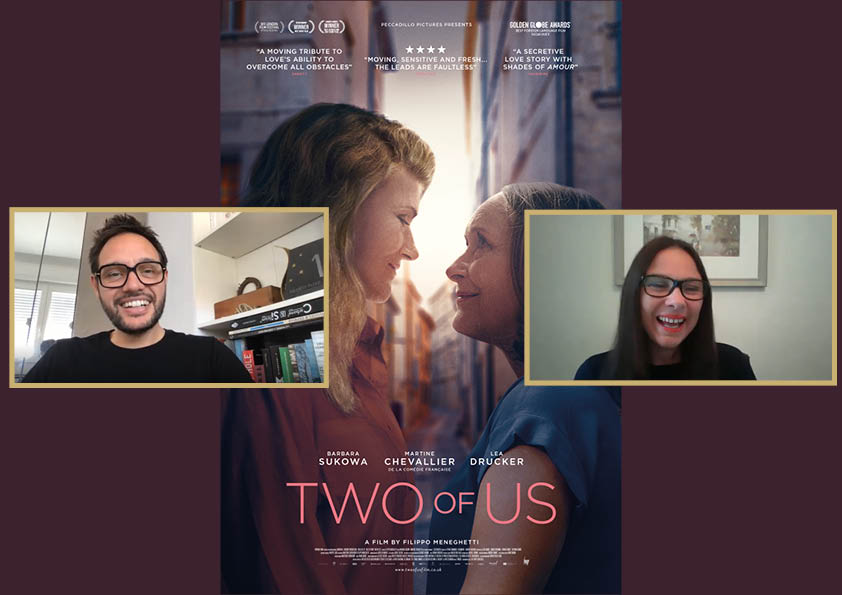
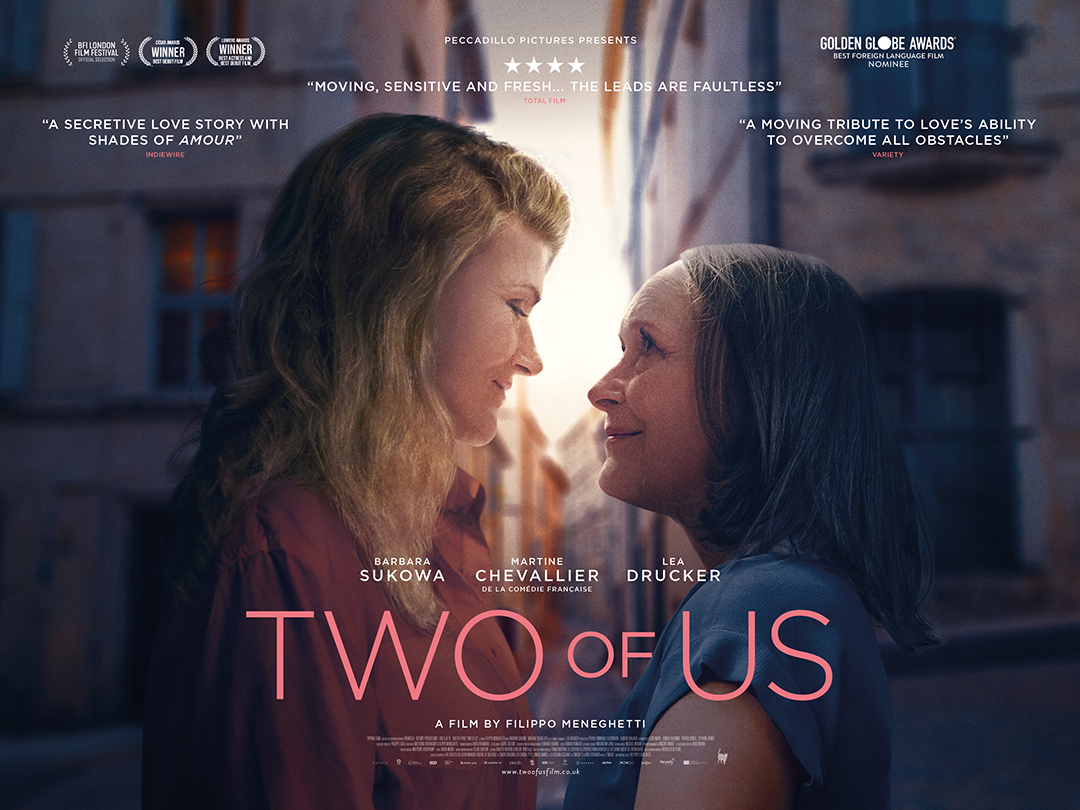
At A Glance
An evocative love story of two retired ladies who have secretly held a tender and loving relationship for decades. When an unexpected event occurs the equilibrium of their relationship is sent into turmoil threatening their future alliance in this suspenseful, truly compelling drama.

Film Details
Directed by Filippo Meneghetti
Written by Malysone Bovorasmy, Filippo Meneghetti
Distributed by Peccadillo Pictures
Released in UK cinemas / Digital 16th July 2021
2021, 96 minutes, Cert 12
Cast
Barbara Sukowa as Nina Dorn
Martine Chevallier as Madeleine Girard
Léa Drucker as Anne
Jérôme Varanfrain as Frédéric
Muriel Bénazéraf as Muriel
It was no surprise for me to learn that the Two of Us (Deux) was nominated for best motion picture in a foreign language at the Golden Globes because the film is simply sublime. Writer / director Filippo Meneghetti has been daring enough to approach a subject that would present a challenge for most film investment. Yet it was a story he loyally remained faithful to and thank goodness because he has carved a sumptuous, compelling, must see love story. I was lucky enough to interview the Italian now living in France about his unique and original film centred on the enduring love of two ladies in their twilight years.

What I really liked was just how original and unique the story is and I wondered what the inspiration was for the story?
Well, thank you first of all. The story is a long story (laughs). The very first starting point came from my teenage years, where I had two people who were very important for me since they are the people who passed on the passion for cinema, which went through a very difficult time, especially one of them. I mean the story of the film is invented, completely made up, but yet she went through and very difficult time and I was very touched by what happened to her. And I always thought that if one day I had the chance of a possibility to reach an audience, then I would have loved to tell that kind of story, as a gesture to give something back to them. And then for years I was looking for the right angle, for the right way to tell this kind of story which is a story of self-censorship and exclusion and then I came across, like a long time later, almost I guess couldn’t be more than 10 years ago. I went visiting a friend in Verona, which by the way is Romeo and Juliet town, so it make sense for a love story I guess (laughs). I’m from the Venice region, it’s where I’m from. So I went there and his neighbours were two aging women that became widows pretty much at the same time and to keep each other company they were sharing the last floor of the building. One apartment in front of the other, and kind of sharing the landing with the two doors always open and chatting through the landing. And when I heard that I realised, it clicked and I had this feeling that could be. You know as a filmmaker somehow you are always hunting for metaphors, so I could find the right image that will give you the possibility to show what is going on inside the character avoiding to tell what is going on inside the character. And I felt that was a very simple, everyday life kind of metaphor, a very precise metaphor for the kind of story I had in mind. So it clicked there and then it was five years of work with my co-writer Malysone Bovorasmy which of course added so many other layers to the story.
One of the many things I really liked. We first of all see the film from Madeleine’s point of view and then then this event happens that then changes the whole dynamic of where the film goes and then we see the film from Nina’s perspective and I wondered if you would like to share a little bit more about your idea about the shift in the storytelling?
Well yeah that was really something that we decided very early on. And you know (laughs) it might be funny but the model of that kind of shift in perspective was Psycho (laughs). You know that kind of thing, you get into it then the switch adds something else, but anyway it is very different of course but the idea.. I mean I really like to play with point of view because I believe it’s one of the essence of cinema. So the idea was that this way when you shift, it was a really precise as an idea we had rules, I knew with that I wasn’t going to get inside Nina’s apartment with the camera before the stroke. So this way, in the audience’s way it’s in Madeleine’s point of view but also can share a little bit the perspective of her children. Because this way when you eventually shift to Nina’s point of view, then you realise how empty this apartment is, the fake apartment that she lives in. And also the difficulties of her situation and I would say the amount of lies and imposters and this thing that looks like a game between them, they laugh about it suddenly became cruel and I wanted the audience to experience that difficulty.
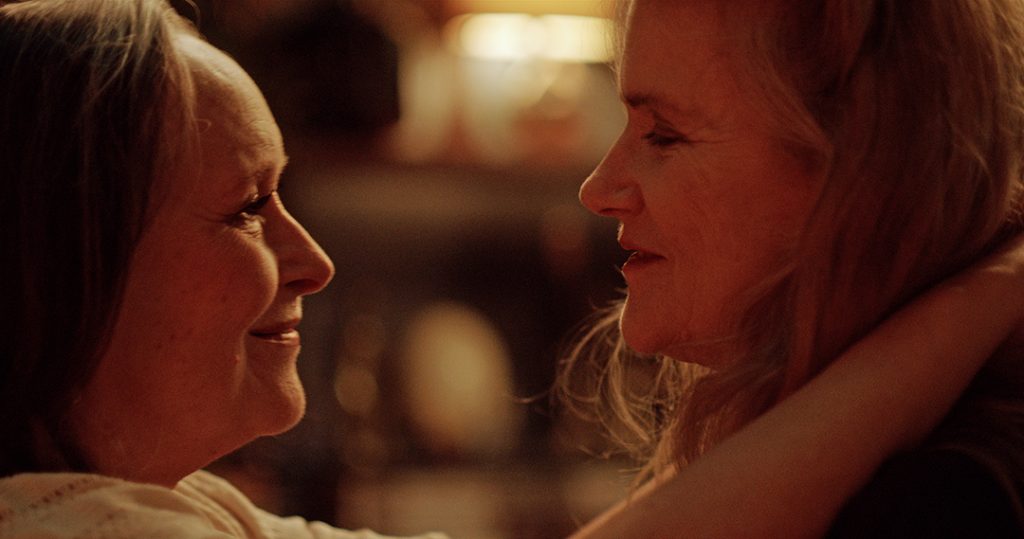
And it is interesting that you say that because the space, the apartments that whole floor is almost like a character in itself and we see from their apartments so much more of their personalities don’t we?
You are completely right, it is a character; it is the fourth character, the apartment the architectural device I used to call it. We had a 3D model of it while writing because the movie really started out of that idea. Because the idea and what is interesting to me is that each apartment is the mirror of each character. So Madeleine’s apartment is a mirror of her life, her story, the fact that it is so full of things, all the silly things that you buy in your family life. And all those things weighs on her like her family bond weighs on her, and at the same time the emptiness of Nina’s apartment which is a fake apartment mirrors here situation after the stroke. The fact that she’s empty somehow and yet forced to be there, and the landing which becomes the everyday life kind of space, and then it becomes a border that needs to be crossed and so that was really the point. And we worked on it since the writing with Malysone and then with the wonderful set designer Laurie Colson, she did a wonderful job in taking care that each detail resonate with the character that was key.
I saw it as an extension of their personalities really.
Yeah indeed, I can show somehow talk to the audience about the personality of that character while filming a shelf or whatever.
“I really like to flirt with genre because I believe it is a game between the film and the audience."
The other thing as the film evolves we never really know what is going to happen, it’s very suspenseful. It’s interesting that you talk about Psycho being an inspiration because it’s a very suspenseful film isn’t it?
Yeah, the thrilling aspect of the film was again something that was there since the beginning. I really like to flirt with genre because I believe it is a game between the film and the audience. Which knows the code of the genre but you don’t do exactly that, you go just beside where you’re expected to be. But yet you use that as something which the audience and the filmmaker can play with. And also I think it was a very good tool for this story because it is a story of secrecy and things that are untold and that’s exactly what triggers the thrilling in the genre, giving or not giving information, it’s exactly how thrillers are made. So I have to deal with the story about things that are untold then it’s perfect. I see where it can be useful and also amusing, which is important.
There is a real intimacy with the look and feel and it’s very delicate and I wondered how you worked with your cinematographer to create that intimacy?
Yeah it was a very interesting thing to do, to balance the genre aspect and the more kind of emotional part of the film which really needed to be the focus, to be always there. So that’s what was tricky and interesting to do because that balance…. But you know that one thing serves the other because if the genre aspect helps it be as you said exactly, close to Nina, then the emotional part will take you even closer and one thing will nourish the other. So there are two different aspects. The only goal I have is how do I move the audience, how do I take the audience with me, how do I bring the audience close to the character. Especially in this kind of film, if the audience believe the love story and believe the emotion of the characters then it will be on the right side of the journey and that’s here we’re heading, you know. And of course the work with the cinematographer is beyond that.
And it works because there are so many moments where you just fill up with emotion, there are very, very touching moments in it. Because their relationship is so delicate and fragile isn’t it?
Oh yeah their relationship is also very complex, that is also another goal we had in mind. How do we depict love in a complex way? It is a very complex feeling with so many different layers. You said before that you don’t know how exactly how it is going to unfold, because you don’t know how a love story is going to unfold, there are so many different ways for love to be played. Even in our everyday life you never know how your emotion will be dealing with the other person’s emotions and that is very compelling to me in my everyday life. So that was again something that really interested me. How do we use all the tools that cinema give us to do something, so we don’t run away from the making of the filmmaking, do you know what I mean? I mean I am not interested in naturalism, I don’t have any problem with that but in the film I am making I am not interested in it. But how do I use all these things to do something that is very life-like in its essence. How do I get close to life in what the emotion triggers in the audience, and that was the goal.
And I think with you saying that another thing I took from the film was you seem to be a director that trusts your actors to deliver the magic on screen.
I had the chance to work with such wonderful actresses (laughs) so Barbara (Barbara Sukowa) who plays Nina; Martine (Chevallier), Léa (Drucker) who plays Madeleine’s daughter, she’s a wonderful actress, Muriel Bénazéraf who plays Muriel. So of course I think they will bring things, I just need to create the right conditions for them to come up with their mystery I guess, and their energy. And that’s what I have to do as a filmmaker, you know, put them in the right situation and write the right scenes, and the right characters and let them do what they do in the path that I prepared, and how do I do (get) the best out of their performance. How do I create something more precise and also how do I bring that to the audience. They are wonderful actress so of course they bring so much.
The film is very contained in the sense that you are working with a handful of actors, it’s a very small cast and for your first feature film how beneficial was it for you to work with just a small cast. Did that make it easier for you?
It was also budget wise (laughs). You never have enough money I guess when you make a film, but it was certainly our case, so we had to make choices also. And on the other hand I found out that everything that wasn’t also in the editing room. Everything that wasn’t exactly focused on them, on the core, it wasn’t core, central for the film, it wasn’t important for the film. So I guess I really like the idea of expressive economy, as I used to say (laughs). How do I leave just the very important things in the film and I cut out everything else. The more I can do with less is something that I really enjoy, and I really believe that for some films and at least in this case, it’s a good process, it’s a good way to go about things. And you know the story was really calling for that, you know it’s almost like the claustrophobic element of the apartment, all those things were really calling for me to concentrate. And I was often joking with the actresses saying that, sometimes I would say, “This is a war scene, but at our small scale.” So that all the drama, all the big things were to be played in a very small, concentrated scale. Because the film; everything is a prototype and every film has its own needs which doesn’t even come from me, I’m just there to listen to what the film needs and I think this film really needed that.
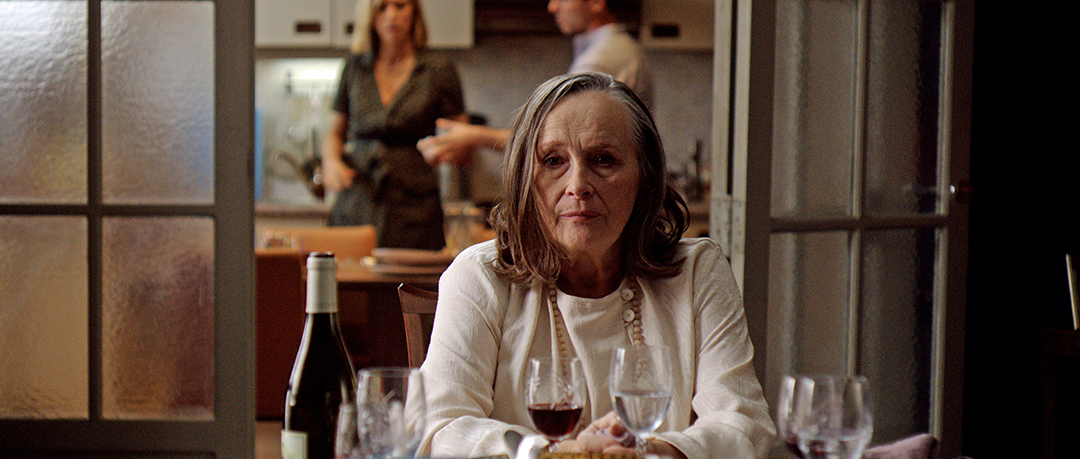
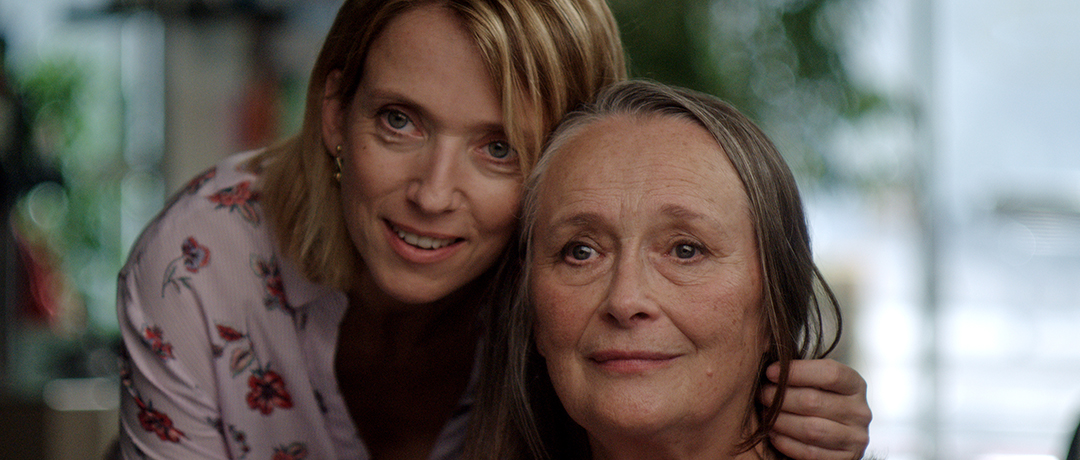
Tip for the Filmmaker - Keep Calm!
You talked about budget and money because it’s your first feature film as a director was it hard to raise the funds because you’ve made short films but you are also an unknown quantity. So raising money difficult really?
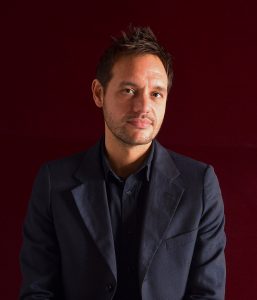
Oh yeah it was hard to be honest, it was very hard. The financing of the film took six years so and then you know it is also the kind of story you are proposing you know. The fact that the two main characters are 70 years old, there’s sickness and a first feature director and all of this made it very difficult. And I had the chance to have beside me Paprika Films, my French producers which were very stubborn and luckily really believed and it was basically the two of them, me and my co-writer Malysone Bovorasmy, we really believed, kept believing we were trying for six years which was a very long time to endure, but I guess it is what it is, first feature, that’s the path that you have to walk if you want to reach that (laughs). So it’s ok, and the journey of the film since then made all this thing worthwhile.
And finally, when you think back to when you started the film is there anything that you would do differently? Or what would you advise yourself before setting off and making the film?
Well, I think it is the worst thing I can do to start to think about what I would do differently, you know because then it is never ending and I would lose my sleep for years (laughs). So shouldn’t do that at all (laughs) and I did that all the way through the editing you know, you just kept thinking about all the mistakes that you made and so it’s ok, I’m trying to get over it. But what would I say to myself? ‘Ah man keep calm, it will be ok.’
Two of Us (Deux) - Official Trailer
Claire Bueno
Claire Bueno is a film journalist, presenter and interviewer, having moderated BAFTA, Royal Television Society (RTS), Women in Film and Television (WFTV), and Apple Store Q&As and hosted Comic Con panel talks. Claire is the founder of Premiere Scene Magazine and has had the privilege of interviewing esteemed artists including Tom Cruise, George Clooney, Brad Pitt, Sir Anthony Hopkins, Sigourney Weaver, Emily Blunt, Samuel L Jackson, James Cameron and Andy Serkis.
As a media coach Claire works with leading personal publicists, HBO, Netflix, Sky, ITV, Penguin Random House, the BFI, DDA, MacMillan and Premier, offering practical coaching sessions and safe environment for talent to perfect their interview technique before facing the press. She has extensive experience working with emerging and seasoned professionals and where English is not their first language.
Additionally, Claire is the producer of the critically acclaimed feature documentary CLEANIN’ UP THE TOWN: Remembering Ghostbusters and the upcoming TOO HOT TO HANDLE: Remembering Ghostbusters II.